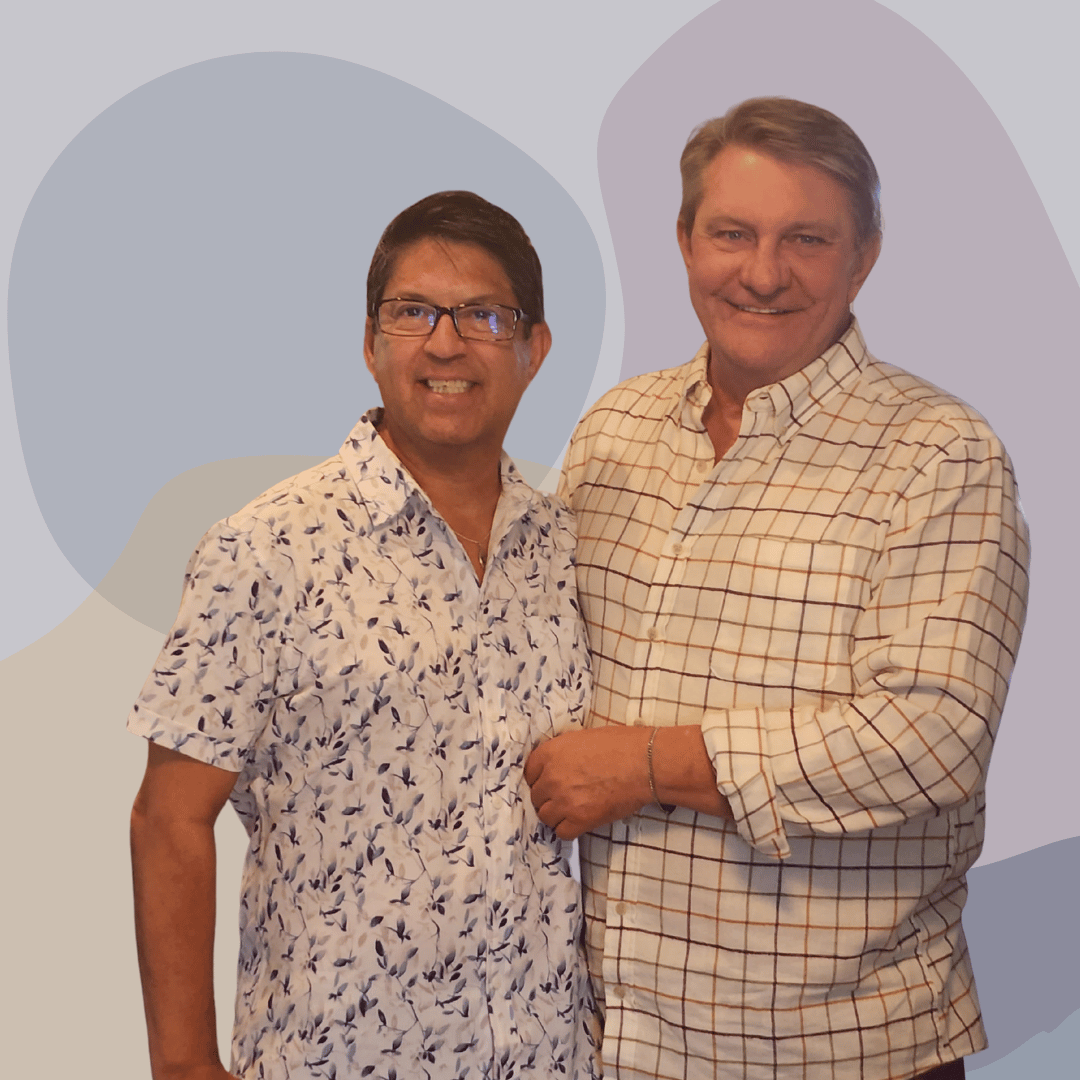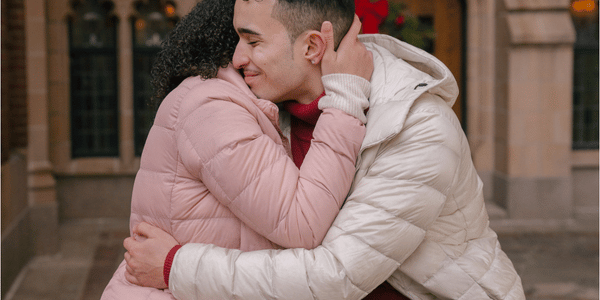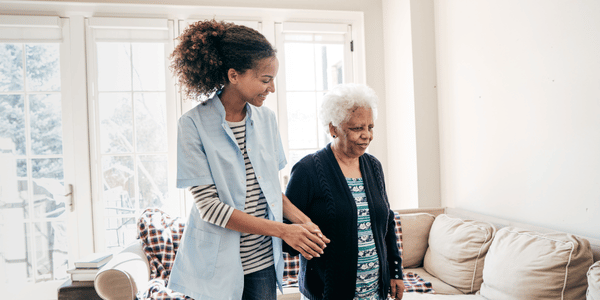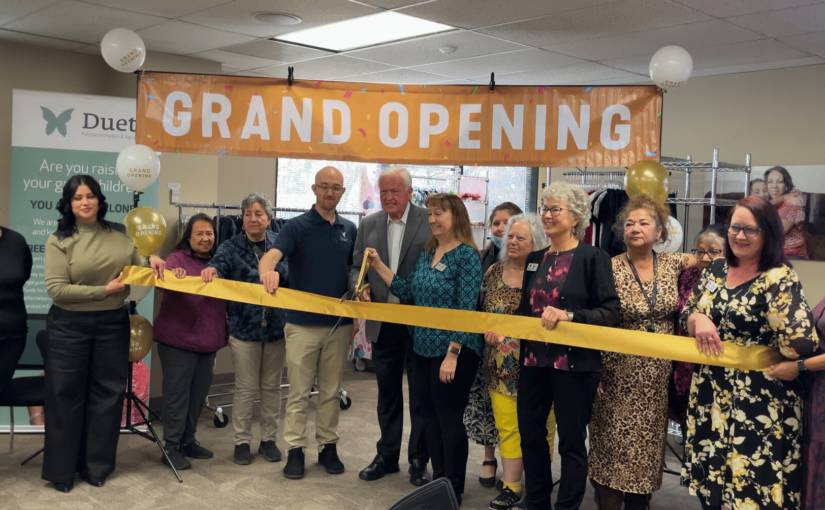Dancing with Leonard: A Family Caregiver Freestyles His Way to Health and Well-being

“It was the first support group I had ever walked into after we knew something was wrong, and it was like going home. For me, it means safety. It means welcoming, and understanding,
Family caregiver, Mark Garrity
and it keeps me sane, and steady.”
Freestyle is more than just an improvisational genre of dance. For 62-year-old family caregiver, Mark Garrity, it’s a way of life—for now.
Mark met his partner, Leonard Chayrez, 21 years ago at a popular local downtown venue, Charlie’s Phoenix . Mark was a project manager and systems analyst, mired in processes and predictability; Leonard, a creative and talented florist who loved adventure and to dance.
Seeing Mark and Leonard together, you get a real sense of the steadfast love they have for one another. The back and forth exchange of banter between the two highlights the beauty of their dance together. They know each other well and it shows.
As our conversation continued, Leonard, following an unspoken cue, instinctively excused himself from the conversation to let Mark openly share more about his journey as a family caregiver. A new tempo began.
Leonard was diagnosed with mild cognitive impairment—a precursor to Alzheimer’s disease—about 3 years ago at age 52. Being diagnosed so young, both were struck by the stigma attached to the disease whenever they shared the news with family and friends. Mark relates, “you know, it’s funny, and I hear this a lot from others, friendships and family kind of fade back a lot, and there’s a lot of times that we are on our own. I want to be in denial, and he wants to be in denial. But people take advantage of being able to separate [distance themselves] and be in denial.”
It was this very stigma that set the course for their advocacy work today. In the midst of keeping a daily routine and maintaining boundaries to help Leonard cope, Mark actively keeps them both involved with several organizations promoting Alzheimer’s awareness.
If you’ve ever been charged with caring for a family member—be it a child, parent, disabled sibling, or spouse—you understand how taxing caregiving throughout a day can be. For Mark, given his prior line of work and proclivity for uniformity and regularity, it is especially frustrating. Mark shares, “everything needed to be in order [at his job], and you needed to have contingency plans. You plan your brains out! And this is not how any of this works. That’s real hard. That’s where I get frustrated.”
Mark, like many of us, finds it challenging just keeping step to navigate daily life, and then to have another added layer of caregiving can make it seem overwhelming and hopeless. So, Mark took a step back and reached out for support at Duet. “Duet was my first contact and launch-pad to begin my caregiving journey. From day-one it has felt safe and understanding. I certainly wouldn’t be able to have such a loud advocacy voice (big mouth) nor perseverance without the support of each of you and the Duet organization.”
With free-of-charge virtual resources, such as webinars, symposiums, discussion groups, and other support services, family caregivers learn to recognize themselves as caregiver and take that first step toward reducing stress, building resilience, and finding hope for the future. With resources like Duet on his dance card and for his caregiving journey, Mark has discovered a renewed sense of confidence, hope, and positivity for himself as a family caregiver. Their freestyle dance continues, renewed and in-step, with Mark leading his partner, Leonard, in time across the changeable, unpredictable dancefloor.
Duet congratulates caregiver, Mark, for his recent nomination and winner of the David Besst Award, conferred by Arizona Caregiver Coalition. The honor recognizes a family caregiver who promotes the rights of caregivers through advocacy and education.
CLICK HERE to learn more about Duet’s support groups for family caregivers.
CLICK HERE to learn more about the broad range of virtual resources for family caregivers of loved ones with dementia at Duet’s Meaning & Hope Institute.


